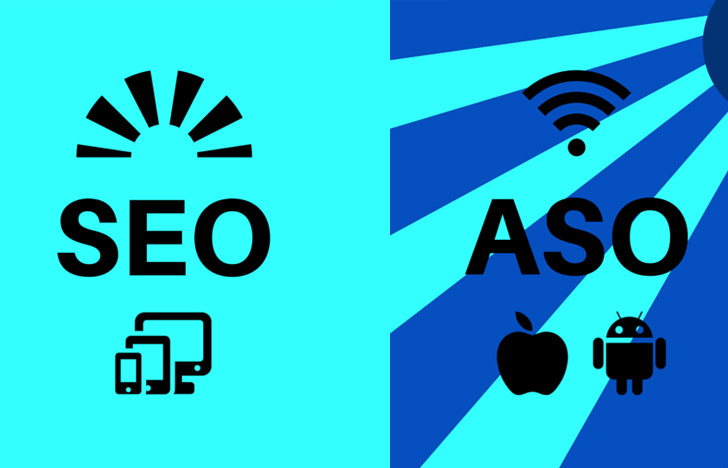ASO is not same as SEO – They are different in Approach and Results

You have created the most amazing and convenient app for your customers and it is like on both Apple’s app store and Google store, so what will be your next action? Obviously, your job doesn’t end there. In fact with that popping champagne at event launch of your app, your real journey begins!
You have to make the app reach the targeted audience and get it recognized among millions of other apps available in the play store or app store. You need to plan beyond just positioning your app; you will be required to implement the mobile marketing techniques. And if you are considering it to be optional, let me present two really interesting facts regarding mobile apps:
- According to Forrester Research Inc., 63% of mobile users discover app through browsing in their Google store or Apple app store rather than any other method.
- As per a report by Adjust, 83% of the apps on both the app stores are still lying invisible even though they are designed and developed really well.
Hold on! If you are thinking that you can maximize your downloads by purchasing them and get your app among the top searches then I am sorry to disappoint you but that might not serve the purpose in the long run. Understand that the users are looking for apps that meet their requirements and needs rather than the ones with more number of download.
That is where the role of App Search Optimization (ASO) comes in. Though it is considered to be same as Search Engine Optimization (SEO), there are some significant differences between both the terms. The similarity is drawn only because SEO seems like a familiar reference for the marketers.
In ASO, you will have to compete here to get the maximum authentic downloads against other apps of your category, rather than merely focusing on getting the clicks and traffic on your website which is the aim of SEO.
Let’s discuss the difference between the two in detail – What components are given preference in both the techniques and how users behave on both the platforms among others.
How do Users Search For and Install an App?
The most important thing to understand here is that how does a consumer search on the app stores as opposed to why and how they search on the web search engines is very crucial for building such an app listing which is optimized as per the app stores search traffic.
The major difference between web search and app store search relies in the intentions of the users. Remember! On web they often visit the website to simply explore it and see what is it about but in the app store they browse to download the app, which means they would be using more data for app download.
Search Semantics in App Stores vs Web Search
You might be surprised to know but the search terms for similar products on both the web and app vary to a huge extent. For instance, if you check at the Google Planner (a tool to check relevant trending keywords) for the phrase ‘editing images’ then you will encounter results like ‘edit images online’, ‘edit images for free’, ‘edit images’, ‘ how to edit images’ and ‘program to edit photos’.
However, if you will search in app store intelligence software, you will find the related phrases coming up as ‘camera 360’, ‘photo editor’, ‘camera roll’, ‘photo collage’ and ‘photo blender’.
So, you need to be very cautious while searching keywords for your mobile app optimization because the phrases that Google Planner will suggest you for the title, description and other keyword fields would provide you wrong results as your users think differently on their mobile app store than their search engine.
User Intent Differences
The intention with which a user searches in app stores and on the web differs a lot. To make it clearer for you, web searches can be categorized into three parts:
- “Do” Transactional Queries – Requires Action
- “Know” Informational Queries – At the times when user ask for any information
- “Go” Navigational Queries – When user seeks for a particular destination on the web
However, app store searches fall under two categories:
- Feature-based Semantics – The multi-word terms mentioning the features
- Brands – The particular brands that users are looking for
Though ASO and SEO seem similar in the terms that both of them as optimizing techniques, they are not in real. As the platforms/devices change, the strategies and tools for optimized marketing also change.
Author Bio
Ashish Sharma is a Key Account Manager at WeDigTech, a hub of skilled Indian app developers skilled in iPhone app development and android app development. WeDigTech helps enterprises and startups with web and mobile application consulting and development from domestic to MNCs. Ashish has 10+ years of experience in app marketing strategies and building new businesses. Connect with @wedigtech on Twitter.
This blog post was written by a guest author/contributor. If you would like to write or submit a guest post for citec.in/blog, please write us at info[at]citec.in


